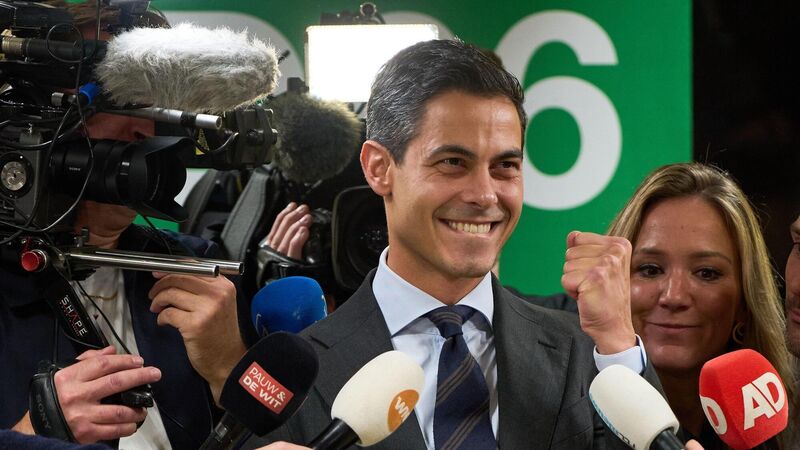Liberal-progressive party D66 wins Dutch election

Rob Jetten, leader of the D66, celebrates, one day after the general election, at the House of Representatives in The Hague. Pic: Peter Dejong/AP
The Dutch liberal-progressive party D66 won the most votes in Wednesday’s general election, the news agency ANP has reported, putting its 38-year-old leader, Rob Jetten, on course to become the youngest prime minister in the Netherlands.
While the last few thousand votes are still being counted, Dutch media reported on Friday that Geert Wilders’ anti-immigration, anti-Islam Party for Freedom (PVV) could no longer win.











